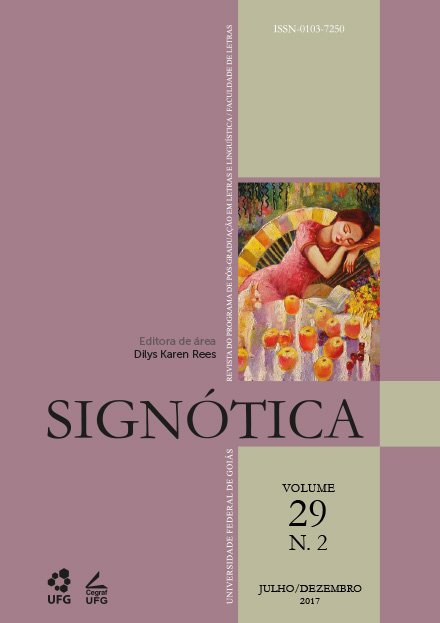Una propuesta de estructura interna para los pronombres personales en portugués brasileño
DOI:
https://doi.org/10.5216/sig.v29i2.41134Palabras clave:
Sistema pronominales. Sincretismo. Concordancia. Subespecificación.Resumen
Este artículo discute cómo el uso abarcador de las formas de pronominales en portugués brasileño está autorizado por su composicionalidad interna. A partir de un modelo minimalista de la gramática (CHOMSKY, 1995, 1998, 1999), se adoptó una teoría de rasgos enriquecidos (BÉJAR, 2003; CARVALHO, 2008, 2010), desarrollada con base en la noción de implicación y subespecificación de rasgos, con el fin de componer tales pronombres. Esta propuesta tiene como objetivo arrojar sobre el problema de la concordancia entre los elementos que presentan diferencias entre sí con respecto a su conjunto de características (persona, número y género). Este enfoque proporciona una descripción más clara acerca del sincretismo de las formas pronominales personales en portugués brasileño a partir de su estructura interna, lo que simplifica sustancialmente la descripción de las operaciones de concordancia en esta lengua.
Descargas
Publicado
Cómo citar
Número
Sección
Licencia
Derechos de autor 2017 Signótica

Esta obra está bajo una licencia internacional Creative Commons Atribución-CompartirIgual 4.0.
Autoras (s) autorizan a Signótica a publicar artículo, si es aceptado, firmando su contribución como original y no sometida a otra editorial para publicación. En caso de aceptación y publicación, artículos de Signo tienen licencia Creative Comons BY-NC-ND (Asignación + NoComercial + SemDerivaciones)






1.png)





